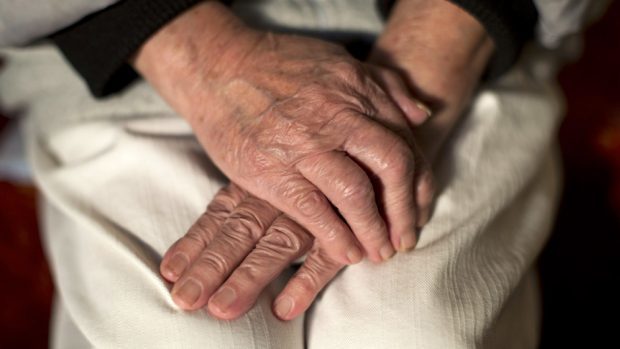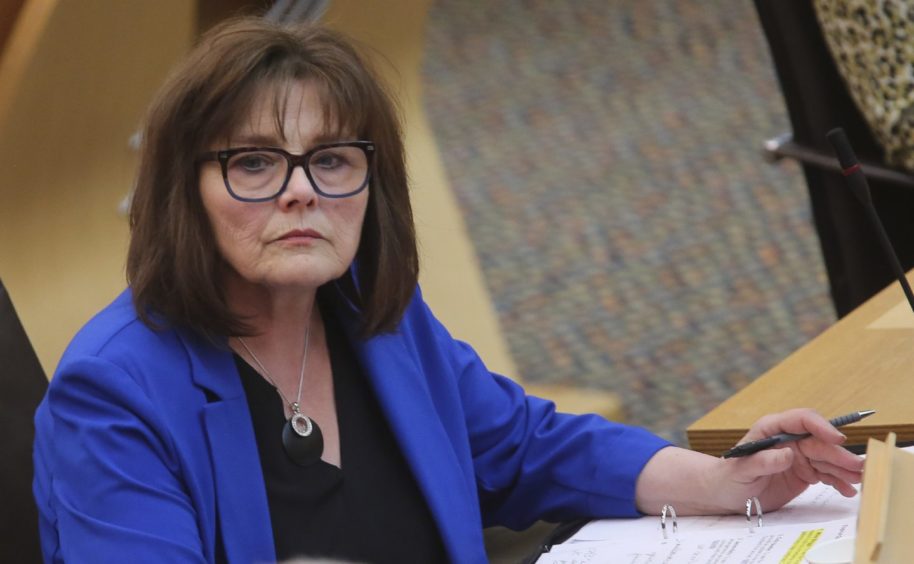Poor pay and conditions for care workers have harmed efforts to stop coronavirus spread, the organisation responsible for looking after the elderly in Aberdeen has warned.
The claim was made in a document submitted to Holyrood’s Covid-19 Committee that suggests decisions by care home staff on whether they should self-isolate during the pandemic were influenced by sick pay provision.
The submission by the Aberdeen City Health and Social Care Partnership (ACHSCP) was made as Health Secretary Jeane Freeman was challenged on trade unions fears that poor employment practices are rife in the care sectors and staff are not receiving cash to which they are entitled.
Ms Freeman was appearing in front of the committee as MSPs discussed the Scottish Government’s Social Care Staff Support Fund, which was supposed to protect the incomes of care workers if they caught Covid or were forced to self-isolate.
In its paper, the ACHSCP made the “uncomfortable” point that some care workers had poorer terms and conditions than those working in the NHS or for local authorities.
Not only did this have a “personal impact” on staff and their families, but “crucially it has also very likely had an impact on our efforts to combat the spread of the virus”.
Despite all the media coverage of the local, national and global impact of Covid-19, it would seem that the personal decisions of employees who were either ill or needing to self-isolate themselves in line with national guidance were influenced by whether their employer offered contractual sick pay or not.”
Aberdeen City Health and Social Care Partnership
The ACHSCP document referred to a recent Office for National Statistics (ONS) publication looking at the impact of the virus on English care homes. The ONS publication found that: “Care homes in which staff receive sick pay are less likely to have cases of coronavirus in residents, compared with those care homes where staff do not receive sick pay.”
The ACHSCP added: “Despite all the media coverage of the local, national and global impact of Covid-19, it would seem that the personal decisions of employees who were either ill or needing to self-isolate themselves in line with national guidance were influenced by whether their employer offered contractual sick pay or not.”
The organisation, which looks after adult social care services, quoted figures published last year that highlighted the predominantly female workforce (83%) in the sector as well as the 20% on non-permanent contracts, the proportion working unpaid overtime (15%) and the 11% on zero hours contracts.
The paper said it was “difficult to say” if the Scottish Government’s fund would improve the situation. It added it was “arguable” that deficits in the pay, conditions and opportunities for the care workforce had “meant the resilience of certain parts of our social care sector has not been robust enough to cope with the significant and wide-ranging impacts of the pandemic.”
Health union attacks poor staffing practices in care sector
Unison Scotland had written to the committee to say it was a “disgrace” the scheme to protect care workers from financial hardship was still not fully functional.
Ms Freeman pledged she would look into the issue, adding she cannot understand why employers would not accept the “free money”.
Unison said: “Poor staffing practices are still widespread in the sector – this means that large numbers of staff have no access to proper sick pay protections.
“This, in turn, meant that staff, if they either believed themselves to be ill with Covid-19 or that they had been in contact with those who were, had the choice between taking a risk in going to work or feeding their families.”
Unison said the problem is worst in privately operated care homes, with some companies claiming they cannot interpret the regulations so will not pay out.
Other employers are using a very narrow definition of the hours a staff member works, leaving them considerably out of pocket, the union says.
Its written submission states: “It is a disgrace that even now the scheme is in many cases still not fully functional – that this is the case is another sign that our care home system is not fit for purpose and needs radical reform.”
The union added: “Were fair work principles applied consistently throughout the care home sector – particularly but not exclusively in the privately operated homes – the scheme would not have been necessary. This almost certainly would also have saved lives. A lack of decent employment practices has mean that government has had to intervene to provide a basic safe working measure – standard in the NHS and far beyond – that care home operators refused to.”
At the committee, Scottish Labour MSP Alex Rowley asked Ms Freeman about the “significant failing” in pay and conditions.
Mr Rowley, MSP for Mid Scotland and Fife, said: “Many employers are still denying staff the payments that make the difference between them having to risk their own and their clients’ health.
She replied: “Where any of the unions or any other party has evidence of an employer who is continuing to pay only statutory sick pay and not accessing the fund, then we would want to know that and try to understand, with the employer, what it is that is stopping them.
“Because, in essence, this is free money, if you like, to the employer.”


